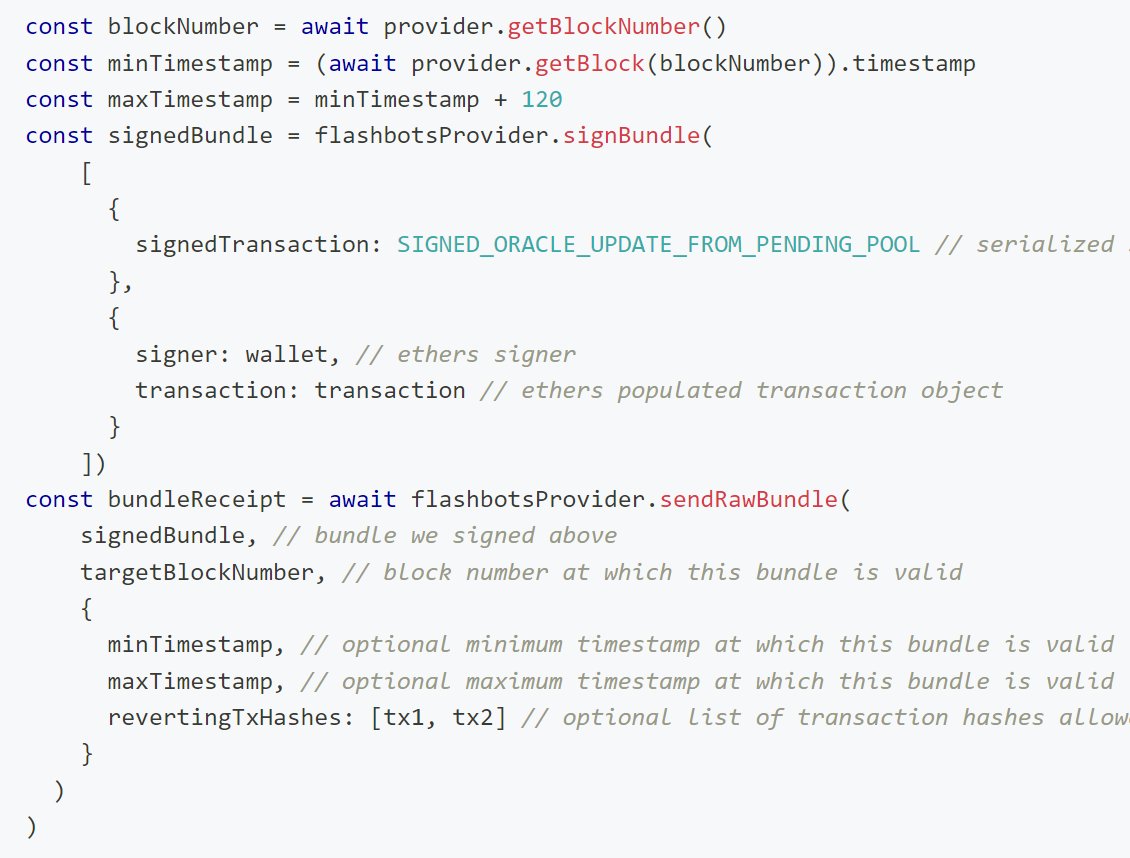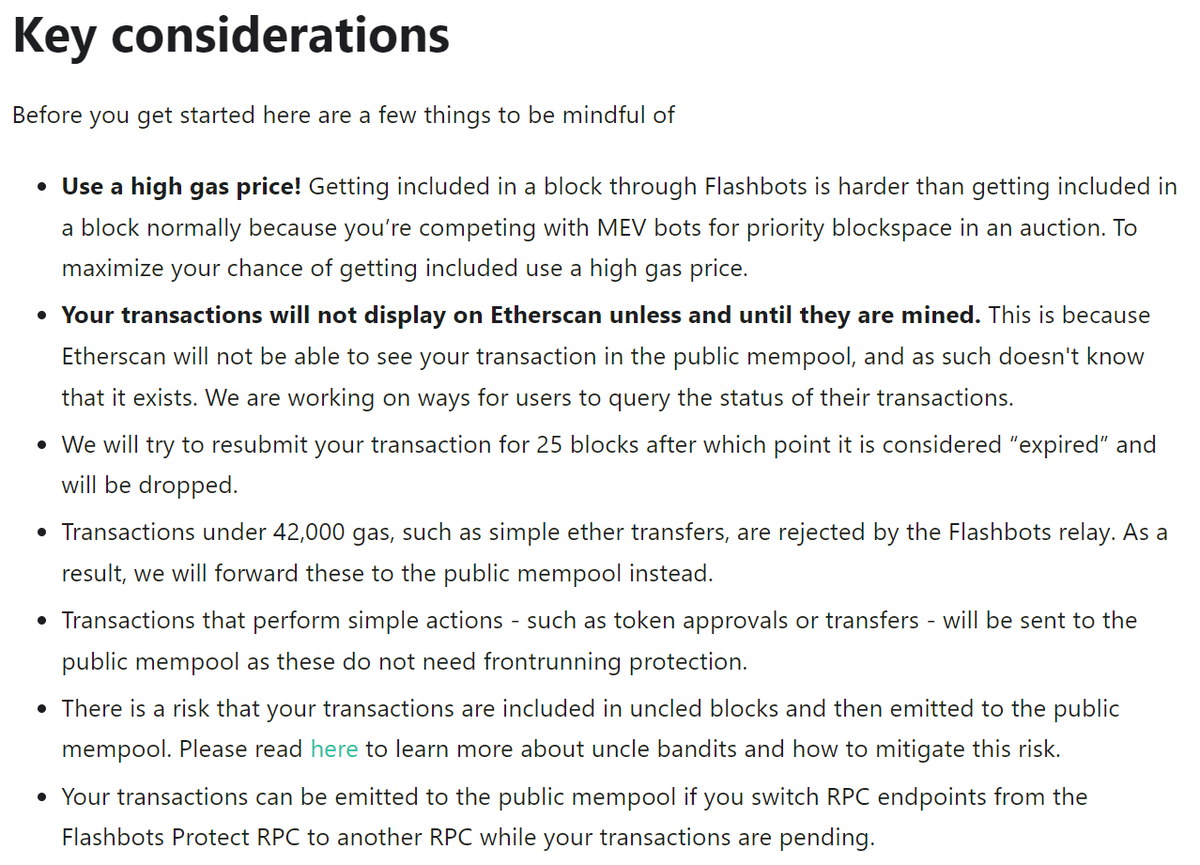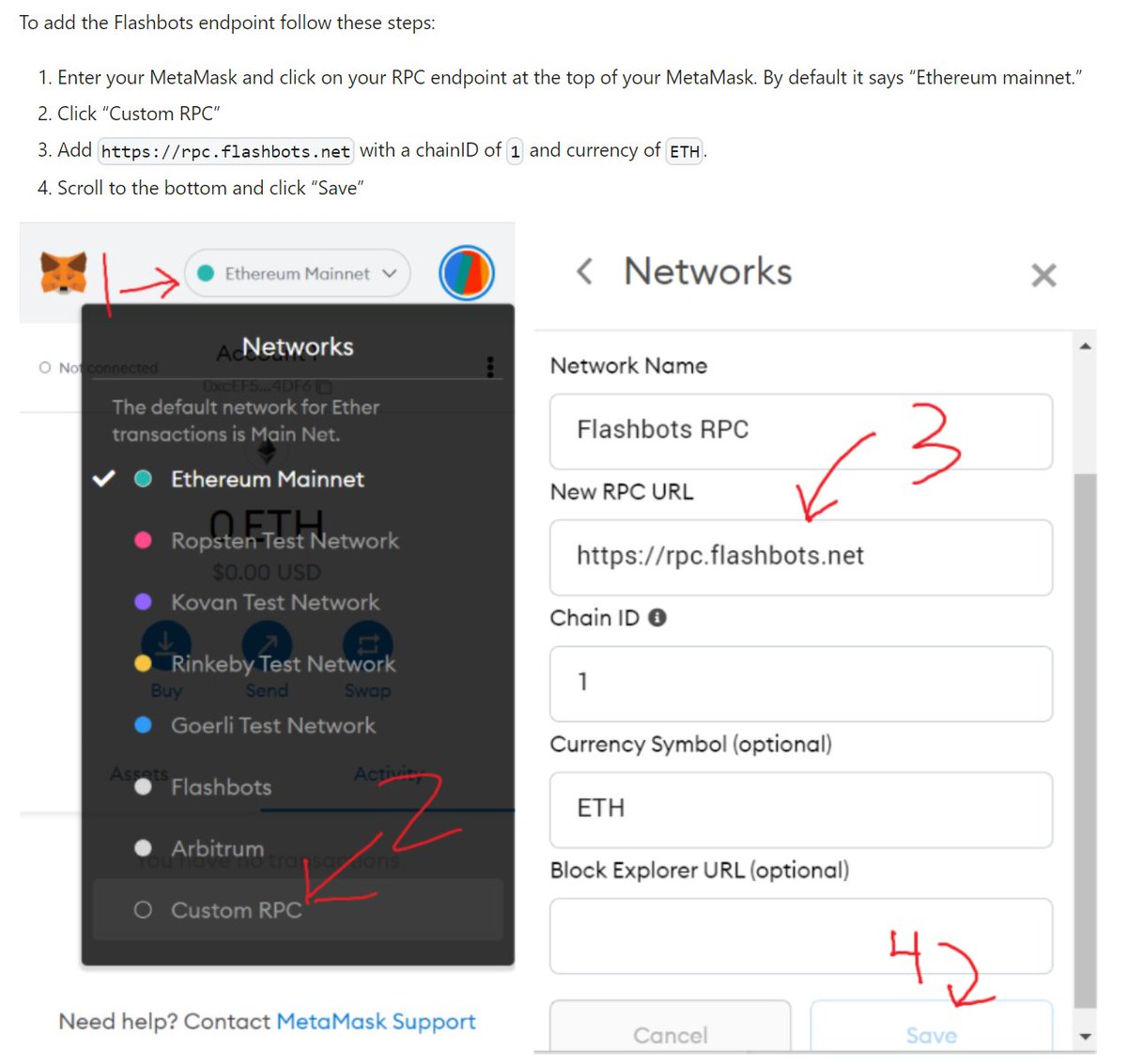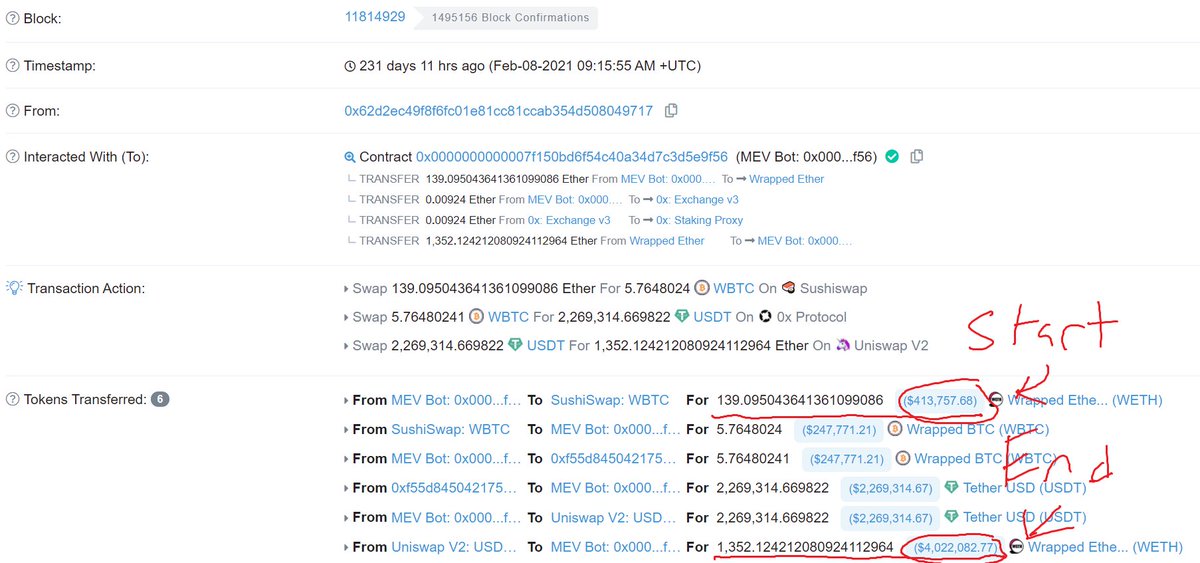
Announcing Flashbots Protect: a suite of tools that makes it easier to use Flashbots for frontrunning protection
The first two Protect products are an API for developers and an RPC endpoint for end users
A brief thread about these products
medium.com/flashbots/anno…
The first two Protect products are an API for developers and an RPC endpoint for end users
A brief thread about these products
medium.com/flashbots/anno…
It's always been possible to submit transactions to Flashbots for frontrunning protection. But it hasn't always been easy to do so.
The Flashbots Auction is powerful but submitting transactions has required new tools and new ways of thinking about those transactions.
The Flashbots Auction is powerful but submitting transactions has required new tools and new ways of thinking about those transactions.
For example the Flashbots Auction uses "bundles" and not transactions as the relevant object
As you can see in this image, bundles include transactions, but have other fields too
That means you can't natively send transactions to Flashbots, you need to wrap them in bundles
As you can see in this image, bundles include transactions, but have other fields too
That means you can't natively send transactions to Flashbots, you need to wrap them in bundles

Another example: in the image you might have noticed Flashbots allows you to target a specific block number for inclusion!
That's a powerful feature for users, but it requires that users to send a bundle for every block, and thus you need new tooling to deal with that
That's a powerful feature for users, but it requires that users to send a bundle for every block, and thus you need new tooling to deal with that
Flashbots Protect API abstracts away this complexity for devs: simply pass us a signed transaction and we'll bundle it, repeatedly submit it, and update you on its status
There are two ways to integrate - a websocket or posting a JSON RPC message (eth_sendRawTransaction)
There are two ways to integrate - a websocket or posting a JSON RPC message (eth_sendRawTransaction)
The first product to use the Flashbots Protect API is the Flashbots Protect RPC 🙂
The Flashbots Protect RPC is an RPC endpoint that users can add to their MetaMask which sends all of their transactions to Flashbots
The Flashbots Protect RPC is an RPC endpoint that users can add to their MetaMask which sends all of their transactions to Flashbots
On the backend the RPC endpoint will smartly manage the submission of transactions.
If it's clear a tx doesn't need frontrunning protection (eg: simple ETH transfers) we'll pass it to the mempool.
Otherwise all txs are sent to the Protect API, which submits them to Flashbots!
If it's clear a tx doesn't need frontrunning protection (eg: simple ETH transfers) we'll pass it to the mempool.
Otherwise all txs are sent to the Protect API, which submits them to Flashbots!
Here's some key considerations for the RPC endpoint, and a guide to setting it up:
docs.flashbots.net/flashbots-prot…
This is still in beta, by the way! We hope to ship better tooling for monitoring your transactions soon :)

docs.flashbots.net/flashbots-prot…
This is still in beta, by the way! We hope to ship better tooling for monitoring your transactions soon :)


If you want to use the Flashbots Protect API directly here's our quick-start page:
docs.flashbots.net/flashbots-prot…
docs.flashbots.net/flashbots-prot…
A big shoutout to @donvincenz0 and @Dire_0x from the Alchemist community for their integral work on the Protect API and help with the RPC
I also want to highlight Swaraj from Nethermind, and Alex & Ivan from MiningDAO for their contributions to the Protect RPC!
I also want to highlight Swaraj from Nethermind, and Alex & Ivan from MiningDAO for their contributions to the Protect RPC!
We're super excited to make Flashbots more accessible to users and developers. If you have feedback or product suggestions please send them to me.
We're also hiring! Check out our jobs here if you're excited about working on Flashbots & tooling like this
notion.so/flashbots/Flas…
We're also hiring! Check out our jobs here if you're excited about working on Flashbots & tooling like this
notion.so/flashbots/Flas…
• • •
Missing some Tweet in this thread? You can try to
force a refresh




